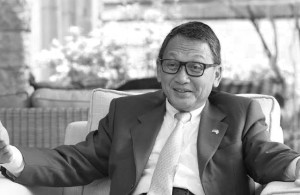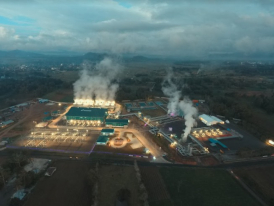Nvidia picks Vietnam to build AI research center, Indonesia lags behind
Nvidia, a technology company from the United States, has set up an artificial intelligence (AI) research and development center and data center in Vietnam following an agreement signed on Thursday, December 5, 2024 in Hanoi, attended by Nvidia CEO Jensen Huang and Vietnamese Prime Minister Pham Minh Chinh.
This research center will focus on AI software development, utilizing Vietnam's abundant Science, technology, engineering, and mathematics (STEM) engineering resources, and involving local ecosystems such as industry, startups, universities, and government agencies.
"We are very pleased to open the Nvidia research and development center to accelerate Vietnam's AI journey," Huang said, while citing that Nvidia is committed to collaborating with local partners to create significant AI innovations.
This move strengthens Vietnam's position as a technology investment destination in Southeast Asia. Previously, in April, Vietnamese technology company FPT announced plan to build a US$200 million AI factory using Nvidia graphics chips.
Ironically, Jensen Huang, CEO of Nvidia, visited Indonesia last month on November 14, 2024 to be a keynote speaker at the Indonesia AI Day 2024 event. The event was organized by Indosat Ooredoo Hutchison (IOH) in Jakarta. At the event, Huang received a special call from President Prabowo Subianto to explore investment opportunities in Indonesia.
Obstacles
Indonesia appears to be lagging behind Vietnam in attracting foreign investment. Economist at the University of Indonesia’s Institute for Economic and Social Research (LPEM UI), Teuku Riefky, cited a number of major obstacles that contribute to Indonesia’s lagging in foreign investment, particularly in AI develoment, namely conditions in the employment sector, financing, innovation, legal certainty, and level of corruption.
"The administrative process in Indonesia is much longer than Vietnam. To start a business, Indonesia needs 11 documents, while in Vietnam only 8. In terms of taxation, Indonesia requires investors to submit 26 tax documents, while Vietnam only 6," Riefky told the media on the sidelines of Selular Business Forum in Jakarta, on Thursday, Desember 5, 2024.
He also highlighted the declining quality of Indonesian human resources (HR) which is now lagging behind Vietnam. "The quality of Indonesian HR which used to be superior than Vietnam is now starting to lag behind, and this will continue in the next few years," he said.
The issue of openness to foreign investment is also in the spotlight. Based on the restrictiveness index, Indonesia is one of the G20 countries that is most closed to foreign investment, only better than the Philippines.
Riefky assessed that if major reforms are not carried out immediately, Indonesia will continue to lose big opportunities as is now happening with Nvidia. "Vietnam is increasingly superior in attracting investment, while Indonesia faces structural challenges that must be addressed immediately," he said.
With increasingly fierce competition in Southeast Asia, Indonesia needs to take concrete steps to simplify administrative processes, improve the quality of human resources, and create legal certainty.
“These reforms are important to increase investment attractiveness, especially in the rapidly growing technology sector,” Riefky concluded.
Already have an account? Sign In
-
Start reading
Freemium
-
Monthly Subscription
30% OFF$26.03
$37.19/MonthCancel anytime
This offer is open to all new subscribers!
Subscribe now -
Yearly Subscription
33% OFF$228.13
$340.5/YearCancel anytime
This offer is open to all new subscribers!
Subscribe now






